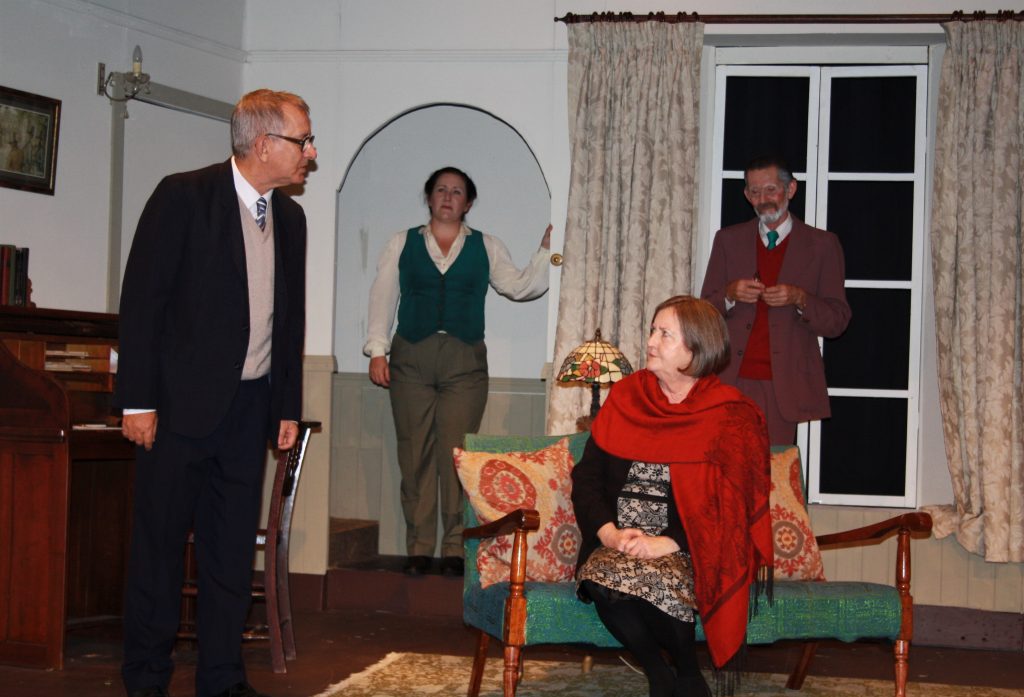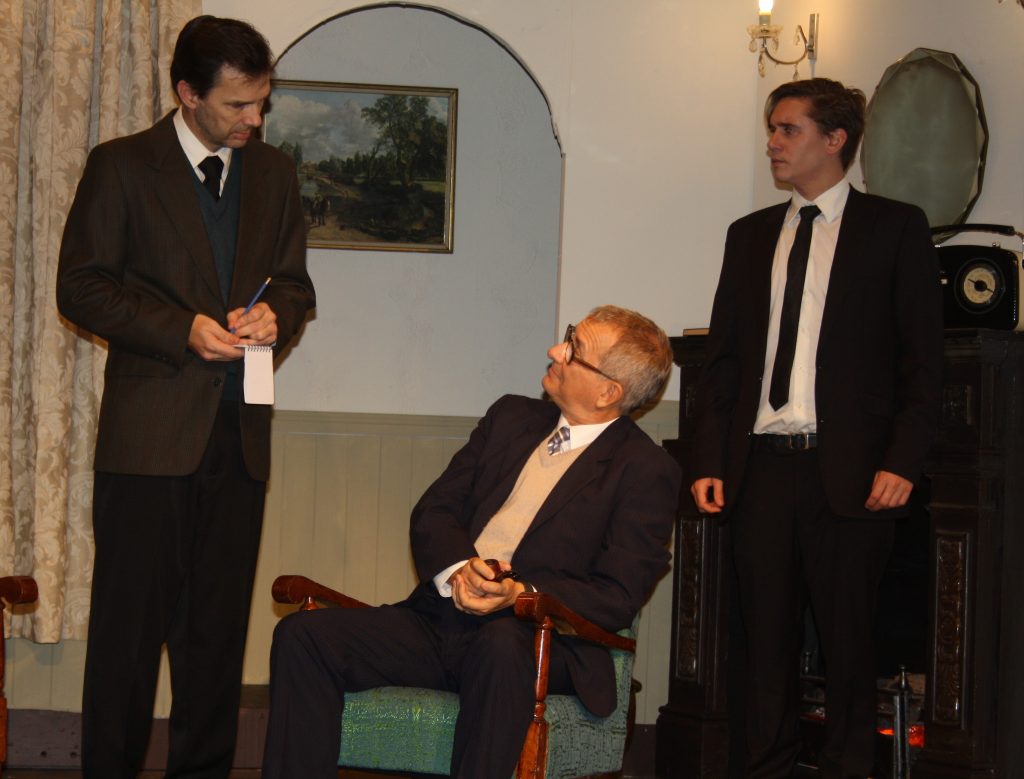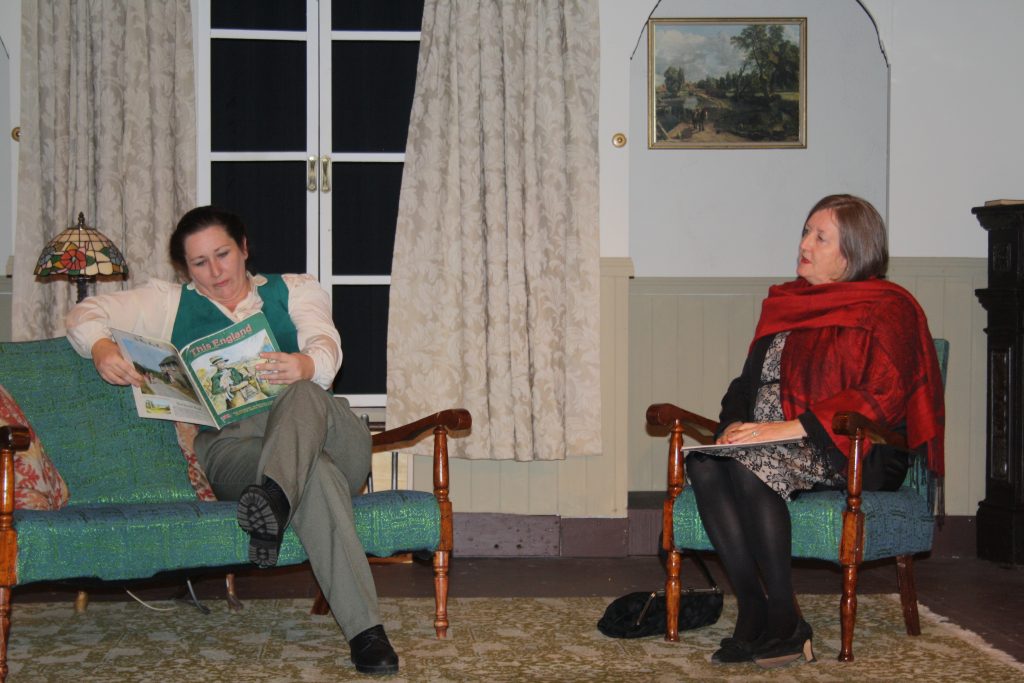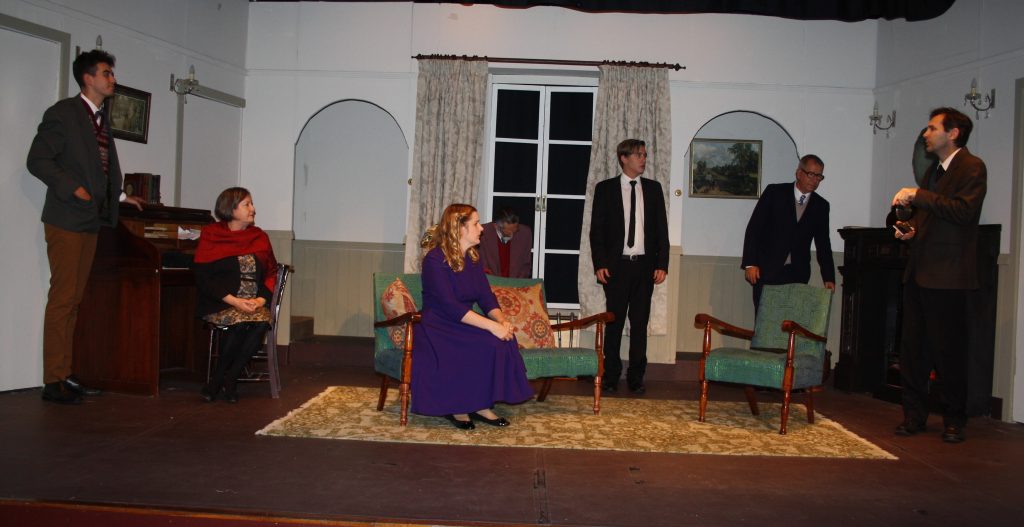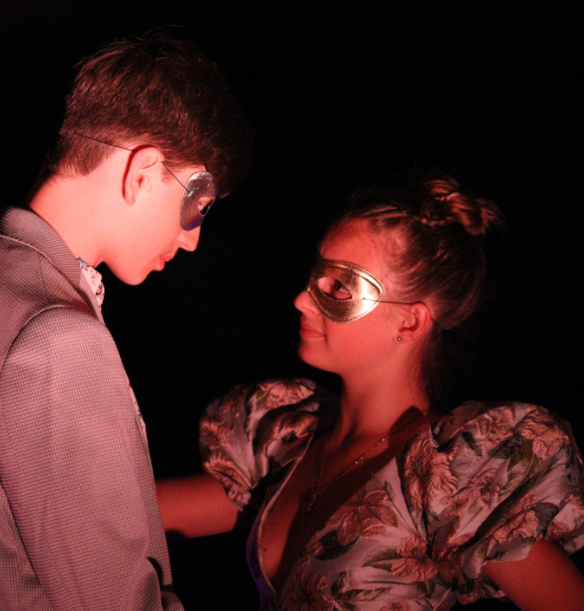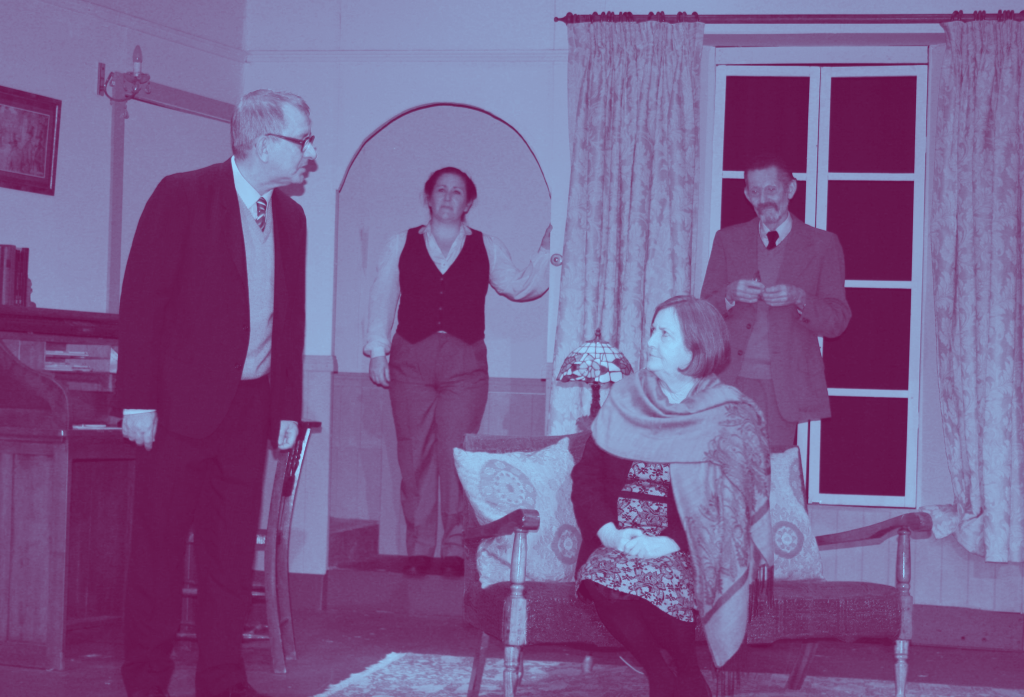
‘The Mousetrap’ // St Luke’s Theatre Society
‘The Mousetrap’ was cunning.
Agatha Christie’s breakaway theatrical hit ‘The Mousetrap’ is on stage for a strictly limited season at St Luke’s Theatre Society, and if you’re a fan of a classic whodunnit, you’ll be guilty as sin if you missed out. With a cast of familiar characters and a plot twist you won’t see coming, this is a fantastic piece of theatre, all set within a quiet, unassuming community hall.
Direction by Sharon White was concise and to the point, utilising the small stage in a way that never felt crowded. Making good use of the set, designed by Brett Simpson, White kept the entrances and exits feeling snappy and polished, and had clearly worked with her cast on their individual characters, and how to make them feel balanced and rounded. There were perhaps a few too many instances of the cast turning their backs to the audience mid-scene, but this would have been hard to avoid due to the size of both the cast and the stage.
Helen Barrett as Mollie Ralston was a treat. Ephemerally warm and pleasant, she drove much of the action forward and provided a significant chunk of the exposition that sets up the improbable show. She made the chunky dialogue feel natural and era-appropriate. Barrett also handled Mollie’s franticness well, balancing it evenly against a perpetual “keep-the-guests-happy” practicalness. This was intelligently done, and could easily have been overlooked by a lesser actor.
Andrew Townsend was prickly, stern, and perpetually difficult as Giles Ralston. He brought the perfect sense of entitlement to the role, doing tasks when asked, but always with the air that he would rather be relaxing by the fire with his newspaper. This haughtiness was neatly tempered by allowing some honest displays of affection during his interactions with Barrett. This anchored the key relationship in the play and gave the audience a sense of reality amidst the chaos.
Sergeant Trotter, played by Matthew Hobbs, was pleasingly gruff and, with a constant business-like demeanour, rounded out the ensemble cast nicely. Hobbs’ energy was steady and well-paced – he made sure the audience had as much information as they should have, gave them time to understand it, and then drove the central plots forward so that the play never felt as though it lagged. His performance in the final scenes was masterful, and easily was some of the best acting of the night.
As “architect-in-training” Christopher Wren, Tom Johnstone was delightful. With plenty of over the top energy vocally and physically, Johnstone brought a larger than life personality to Wren. Relishing in the strangeness of the character, and adding plenty of physical quirks to flesh him out, there was a definite sense of joy in the portrayal. Something the audience responded to, as there is nothing quite so engaging as an actor having a thoroughly good time onstage.
The stern and uncompromising Mrs Boyle, played by Chris Sibley, was as unwelcome as an icy hand on the back of your neck. Expertly handled, Sibley brought a frosty sneer to anything and everything, and obviously took great pleasure in shredding the cast around her with her razor wit and haughty mannerisms. It would have been all too easy to give the character a redeeming quality, a small smile or nod to ease the chill, but wisely Sibley held her ground and, if anything, doubled down on her character’s snide maliciousness.
Ian Bielenberg’s Major Metcalf was a lovely mix of pompous and affable. Like an uncle that visits rarely and always has wonderful stories to tell, his constant fascination with what was going on around him was endearing and appropriately “bumbling”. Bielenberg brought warmth and thoughtfulness to the role that could easily have been lacking, and his innate charm immediately drew the audience to be very much in his favour.
As the dashing and mysterious Miss Casewell, Philippa Dwyer was wonderful. One could almost have expected her to be rushing off to chart unknown lands, or to be having tea with some foreign dignitary. Dwyer’s carefully commanding and mysterious energy matched with the text of the character, giving her an unidentifiable air that drew the audience in from the moment she swept onto the stage.
As the imposing and intimidating Mr Paravicini, John Stibbard stole the show. His performance was masterful, and every look, gesture, and significant pause was polished, practised, and precise. The image of him reclining languorously on the couch in his plum coloured suit twirling his glasses and cackling is one that will stay with the audience. A huge amount of the tension of the play arose from Stibbard’s characterisations, and his wolfish energy and menace were on point at every turn.
A clever, funny, and surprisingly tense night at the theatre, St Luke’s Theatre Society have done themselves proud with this production of Agatha Christie’s ‘The Mousetrap’. Sadly it was only open for two weekends, it could easily have run longer.
For more information about St Luke’s Theatre Society and their upcoming season visit http://stlukestheatre.asn.au.




